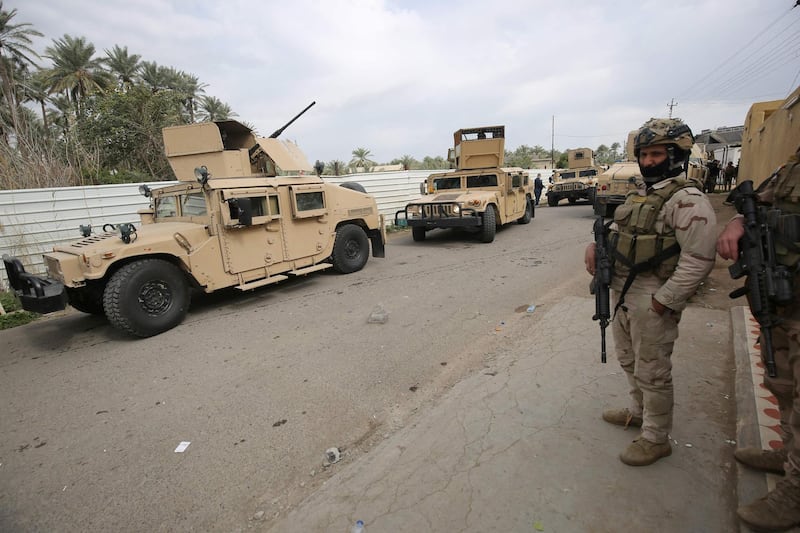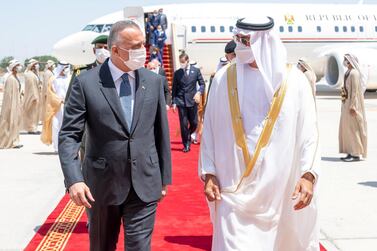Two rockets landed near an Iraqi airbase hosting US soldiers north of Baghdad on Sunday, three days before a new “strategic dialogue” with Washington was due to begin, a security source told AFP.
There was no immediate claim of responsibility for the strike at Balad Air Base, which caused no casualties or property damage.
The US has blamed Iran-linked Iraqi factions for similar attacks on its troops and diplomats.
Sunday’s was the 14th attack against American interests – including troops, the Baghdad embassy or Iraqi supply convoys to foreign forces – since US President Joe Biden took office in January.
Two Americans and an Iraqi civilian have been killed in the attacks.
An Iraqi civilian working for a company that maintains US fighter jets for the Iraqi Air Force was also wounded in one attack.
The operations are sometimes claimed by obscure groups who experts say are covers for Iranian-backed organisations long present in Iraq.
Qais Al Khazali, a senior pro-Iran figure in the state-sponsored Hashed Al Shaabi paramilitary force, recently declared the “resistance” was carrying out attacks and would increase them “unless the US withdraws all its combat forces from across Iraq”.
Washington is preparing to launch a strategic dialogue with the government of Iraqi Prime Minister Mustafa Al Kadhimi, who has regularly received threats from pro-Iran factions.
Mr Al Kadhimi faces the delicate task of balancing the interests of neighbouring Iran and the US, rivals that are both deeply involved in Iraqi politics.
On Wednesday, Washington extended by several months a sanctions exemption that allows Iraq to import electricity from Iran during the summer, when air-conditioning sends demand soaring.
The US, which led a coalition from 2014 to oust ISIS from northern Iraq and Syria, still has 2,500 troops in Iraq.
Since the defeat of their shared enemy, Washington and pro-Iranian factions have exchanged threats and fire.
In February, the US carried out a raid against pro-Iranian Iraqi fighters in Syria.
The Syrian Observatory for Human Rights reported 22 of them were killed, while the Pentagon reported only one death.
US President Joe Biden’s administration has stressed that the action was meant as a warning and to avoid escalating tension between Tehran and Washington.
Pentagon spokesman John Kirby said Washington wanted to “send a very strong signal that we’re not going to tolerate attacks on our people and our Iraqi partners”.
But both sides are wary after a previous escalation in January 2020, sparked by the US assassination of top Iranian general Qassem Suleimani, took the enemies to the brink of war.








